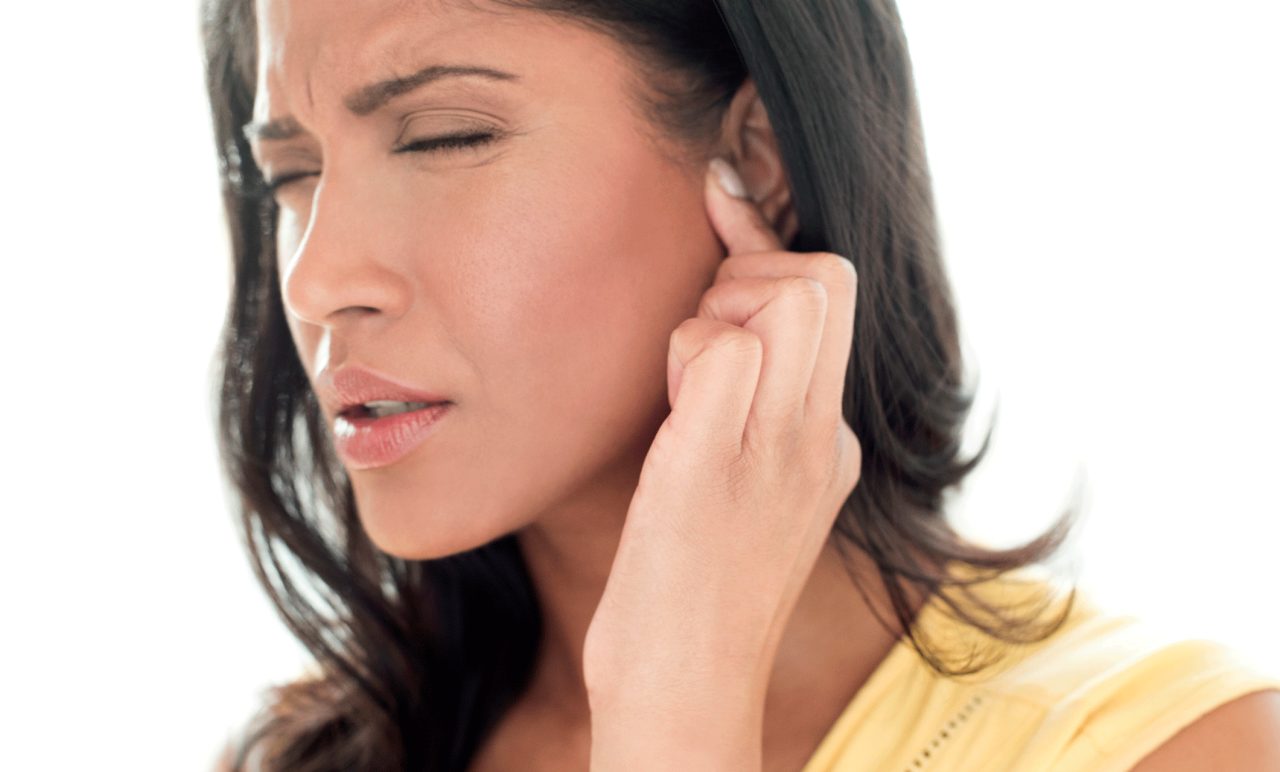Does Hearing Loss Cause Tinnitus?

The vast majority of people with tinnitus — phantom noises in your ears — also have hearing loss, but you may not realize your hearing is damaged.
Go to a loud rock concert, and you might hear ringing in your ears as you leave or when you visit the bathroom. Those sounds are temporary tinnitus (either tih-NITE-us or TIN-ih-tus is correct), and they’re common. When researchers tested amateur rock musicians immediately after a group practice, they found both hearing loss and tinnitus in both ears.
Loud noises don’t just feel like they hurt your ears. They damage tiny hair cells inside your ear as well as the nerve that carries information about sound waves to your brain.
YOU MIGHT ALSO LIKE: What Is Hidden Hearing Loss?
For about 15 percent of adults, tinnitus becomes a common experience without any immediate noise to trigger it. They’re plagued by phantom sounds no one else can hear — not just ringing but sometimes a buzz or tea kettle whistle. You might hear a chirping cicada or staticky radio. (For sample sounds, listen here.) The racket may be in one ear or both, or it might seem to be coming from outside your head.
You can often live with a mild case of tinnitus, simply ignoring the sounds. For about 2 percent of the population, however, tinnitus interferes with their functioning. It is a common complaint among U.S. veterans of Iraq and Afghanistan, who may have suffered damage to their ears from battlefield noise or a traumatic brain injury.
Besides noise exposure and brain injury, about 200 different health disorders can cause tinnitus. About 90 percent of people with tinnitus also have hearing loss that their tinnitus mirrors. People who can’t hear high frequencies are likely to hear a high-pitched ringing or hissing.
If you have hearing loss in just one ear, chances are you’ll hear the phantom noises only in that ear. The reason is that your brain is compensating and making mistakes. When you hear, a sound wave enters your ear and arrives at the middle and inner ear, the site of the cochlea, a fluid-filled area with hair cells. Those cells turn the vibration in the fluid into electrical signals that reach your brain through your auditory nerve. Loud noises — and illness, injury, and aging — damage those cells.
In people with damaged hair cells, the auditory system may, in effect, listen harder. If a signal on a radio is too low, you might turn up the volume. In the same way, your brain turns up the volume on ambient noise. In fact, many people with tinnitus become sensitive to loud noise. It’s louder for them than for other people.
Imagine that you hear more static when you turn up the volume on your radio. You normally have spontaneous electrical firings in your auditory system that don’t come from actual sounds. They’re literally brain noise. One explanation of tinnitus runs like this: With the increased volume, your brain begins to mistake those random firings as meaningful and then assumes they’ll return.
Very rarely, because of hearing loss, you may hear sounds that come from your body, like your heartbeat, that normally would be blocked out.
Sometimes tinnitus will appear after noise exposure when you’re young, go away, and return later in life, when a hidden vulnerability appears as you age.
For the 10 percent of tinnitus sufferers who don’t have hearing loss, the problem may be nerve damage without damage to hair cells, also caused by exposure to loud noises.
The first step to treating tinnitus is to get your hearing checked. Many people don’t notice that they hear poorly because they’re used to it. If you need hearing aids, you’ll find you hear better, and tinnitus won’t interfere as much with your understanding of conversations. Newer hearing aids can also be programmed to mask phantom sounds.
Medication is an option. Some tinnitus sufferers take low doses of anti-anxiety drugs. You might get a steroid in your middle ear along with the anti-anxiety medication. You can also train yourself to be less bothered by tinnitus sounds:
- Practice relaxation techniques.
- Exercise.
- Stay busy to divert your focus away from the annoying sounds.
Updated:
June 30, 2023
Reviewed By:
Janet O’Dell, RN